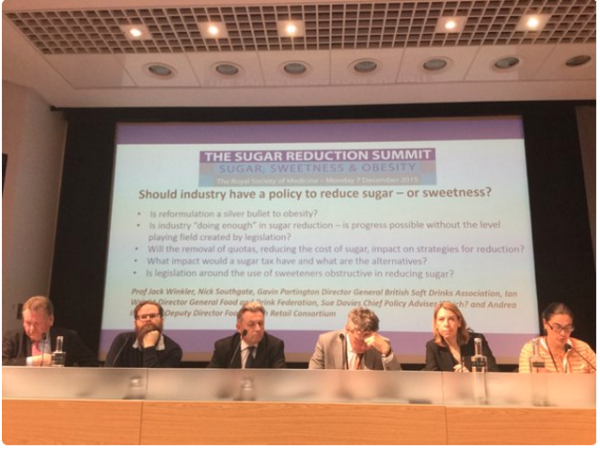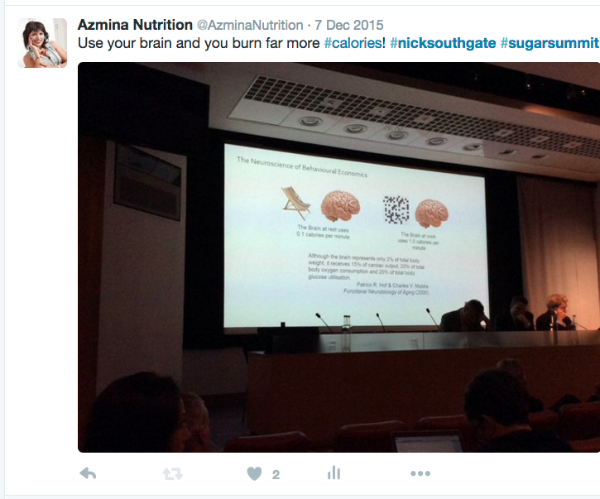Sugar is still high on the government health agenda and The Royal Society of Medicine was this year’s venue for the Sugar Reduction Summit. I love going to conferences for the networking, tweeting (#sugarsummit was trending in the UK!), as well as the learning.
Here are 10 summary tips from some of the lectures:
- Alison Tedstone from Public Health England said it would be a disaster if we focus on one nutrient rather than the whole diet. I agree with that! We need to help the public make practical and sound decisions about food, rather than being sugar-obsessed.
- Dr Nick Southgate in his usual engaging way highlighted how what we eat is more about where we are, and whom we’re with, rather than hunger.
- Dr Carrie Ruxton: if sugar reduction doesn’t lead to calorie reduction, what’s the point?
- Sugar tax? The Panel couldn’t agree on whether price influences purchasing. Persuasion is more popular in changing behaviour than compulsion. So how can a sugar tax solve the issue?
- Prof Sue Jebb said it’s very easy to call for mandatory action, but difficult to see effectiveness. We need clearer monitoring, and there needs to be a clear benefit. And healthcare professionals need to be involved!
- Industry needs to work with government and healthcare professionals to improve access to healthy foods. Put healthier choices at the front of a menu, place a jug of water on the table, push offers on fruit and veg. Start from weaning – prevention is better than cure.
- I must say, I did like this tweet “sitting is the new smoking”:
- Briony Sinclair from the World Cancer Research Fund presented a case study from Norway: promoting fruit and veg in place of sugar-rich snacks was successful; we need a comprehensive approach considering sugar in the context of broader dietary improvements.
- Every speaker advocated a combined approach – it isn’t helpful to demonise one nutrient, we need to look at the whole diet and lifestyle to combat growing obesity. We need to have easy access to healthy foods in hospital, workplaces, schools, and so on.
- A quote from Prof Jack Winkler: “We haven’t been able to reach target of 10%, how are we going to achieve 5%?”. And one of my favourite slides was by Nick Southgate:
Some of my views:
We need better policies and a smarter approach to achieve success. We need to understand more about why people make unhealthy choices. We need to make improvements to our environment to facilitate better food purchase. Poorer people tend to eat less healthily, and taxing sugary foods doesn’t mean they’ll make healthier choices.




